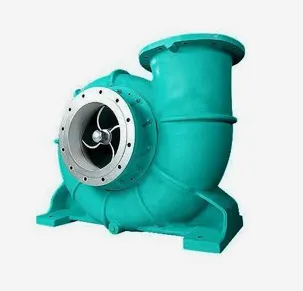English
- Afrikaans
- Albanian
- Amharic
- Arabic
- Armenian
- Azerbaijani
- Basque
- Belarusian
- Bengali
- Bosnian
- Bulgarian
- Catalan
- Cebuano
- Corsican
- Croatian
- Czech
- Danish
- Dutch
- English
- Esperanto
- Estonian
- Finnish
- French
- Frisian
- Galician
- Georgian
- German
- Greek
- Gujarati
- Haitian Creole
- hausa
- hawaiian
- Hebrew
- Hindi
- Miao
- Hungarian
- Icelandic
- igbo
- Indonesian
- irish
- Italian
- Japanese
- Javanese
- Kannada
- kazakh
- Khmer
- Rwandese
- Korean
- Kurdish
- Kyrgyz
- Lao
- Latin
- Latvian
- Lithuanian
- Luxembourgish
- Macedonian
- Malgashi
- Malay
- Malayalam
- Maltese
- Maori
- Marathi
- Mongolian
- Myanmar
- Nepali
- Norwegian
- Norwegian
- Occitan
- Pashto
- Persian
- Polish
- Portuguese
- Punjabi
- Romanian
- Russian
- Samoan
- Scottish Gaelic
- Serbian
- Sesotho
- Shona
- Sindhi
- Sinhala
- Slovak
- Slovenian
- Somali
- Spanish
- Sundanese
- Swahili
- Swedish
- Tagalog
- Tajik
- Tamil
- Tatar
- Telugu
- Thai
- Turkish
- Turkmen
- Ukrainian
- Urdu
- Uighur
- Uzbek
- Vietnamese
- Welsh
- Bantu
- Yiddish
- Yoruba
- Zulu
Telephone: +86 13120555503
Email: frank@cypump.com
Sep . 15, 2024 06:16 Back to list
chemical pumps
Understanding Chemical Pumps Essential Tools for Fluid Transfer
Chemical pumps play a vital role in the industrial sector, especially in processes involving the transfer, circulation, and handling of corrosive, viscous, and hazardous fluids. These pumps are specifically designed to manage various chemicals safely and efficiently. Their importance cannot be overstated, as they ensure that the processes in chemical plants, water treatment facilities, and manufacturing units run smoothly.
At their core, chemical pumps are engineered to provide reliable service under challenging conditions. They come in various types, each suited to different applications. The most common types of chemical pumps include centrifugal pumps, diaphragm pumps, peristaltic pumps, and gear pumps. Each of these types has its unique advantages and specifications depending on the nature of the chemicals being pumped.
Centrifugal pumps are perhaps the most widely used. They work by converting rotational energy, often from an electric motor, to energy in a moving fluid. This type is ideal for low-viscosity liquids and can handle large volumes. However, they may not be the best option for thicker fluids or those that contain solids, as they risk clogging.
Diaphragm pumps are advantageous for their ability to handle hazardous fluids without risk of leakage. They utilize a flexible diaphragm to create a vacuum that draws in fluid, then pushes it out upon expansion. This feature makes diaphragm pumps more suitable for chemical applications where product containment is crucial.
chemical pumps

Peristaltic pumps operate under a fundamentally different principle. They move fluids through a flexible tube that is pinched by rollers, creating a continuous flow. This method allows for precise control over the fluid being pumped and is often used in laboratory settings and applications requiring sterile conditions.
Gear pumps are another type commonly used for transferring viscous liquids. They displace fluid using rotating gears, ensuring a steady flow. This design makes them particularly effective for oils and other thick substances.
When selecting a chemical pump, factors such as the chemical composition of the fluid, viscosity, temperature, and the required flow rate must be considered. The material construction of the pump is also critical. Pumps may be made from stainless steel, plastic, or specialized alloys, chosen based on their compatibility with the chemicals they will be handling.
Safety is paramount when dealing with chemical pumps. Regular maintenance is essential to prevent leaks and failures that could lead to environmental hazards or workplace accidents. Furthermore, industry standards and regulations guide the design and operational procedures of chemical pumps to promote safety and efficiency.
In conclusion, chemical pumps are indispensable in the effective management of liquid chemicals across various industries. With a range of options available, selecting the right pump is crucial for ensuring safety, efficiency, and reliability in fluid transfer processes. As industries continue to grow and evolve, the role of chemical pumps will remain essential, driving innovation and safety in handling chemical processes.
-
ISG Series Vertical Pipeline Pump - Chi Yuan Pumps Co., LTD.
NewsJul.30,2025
-
ISG Series Vertical Pipeline Pump - Chi Yuan Pumps Co., LTD.|energy-efficient fluid handling&industrial durability
NewsJul.30,2025
-
ISG Series Vertical Pipeline Pump - Chi Yuan Pumps | Advanced Engineering&Industrial Efficiency
NewsJul.30,2025
-
ISG Series Pipeline Pump - Chi Yuan Pumps | High Efficiency, Energy Saving
NewsJul.30,2025
-
ISG Series Vertical Pipeline Pump-Chi Yuan Pumps|High Efficiency&Reliable Performance
NewsJul.29,2025
-
ISG Series Vertical Pipeline Pump|High Efficiency&Low Noise
NewsJul.29,2025










